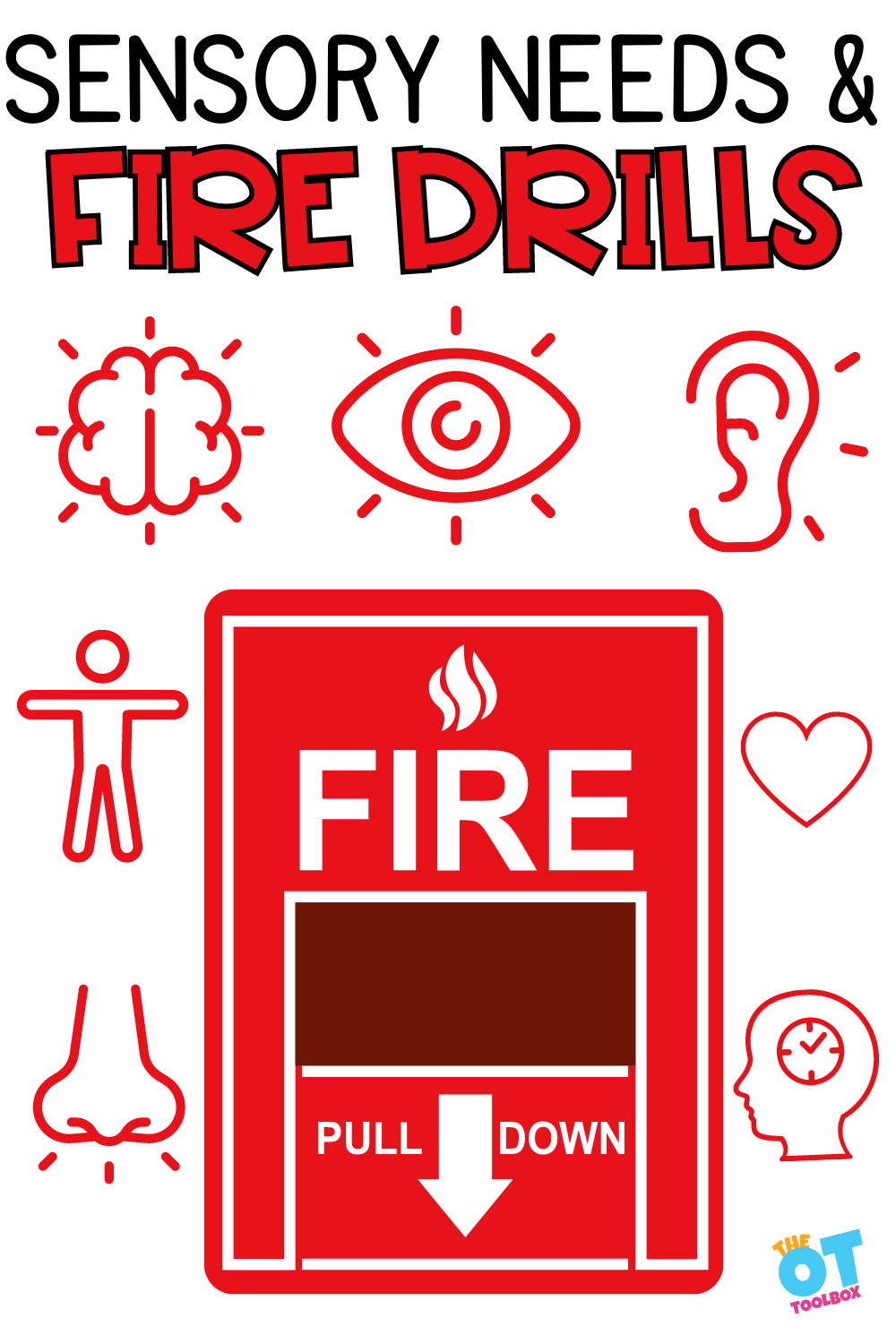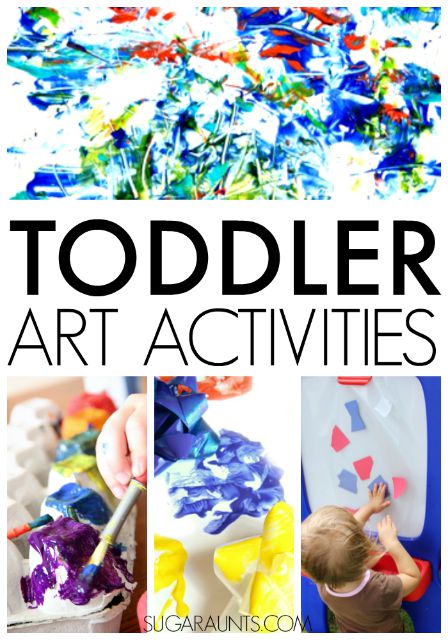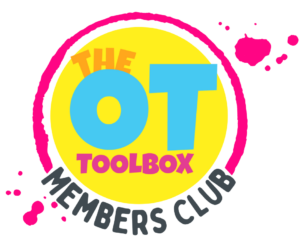The “toddler years” certainly are full of development and growth. Here, you will find loads of OT activities for toddlers…activities designed to promote toddler development. These occupational therapy activities for toddlers will promote the right kids of development in one and two year old children, so that they can build the essential skills that will promote healthy development in kids.
Children between the ages of 1-3 are in that essential toddler stage. It’s during toddlerhood that young children learn so much through play and communication. Toddler play guides the building blocks for functional development, fine motor skills, gross motor skills, language, social skills, and self-care abilities.
Check out the occupational therapy toddler activities below. You’ll find ideas for occupational therapy sessions, suggested play ideas for the home, and ways to help toddlers develop through play!
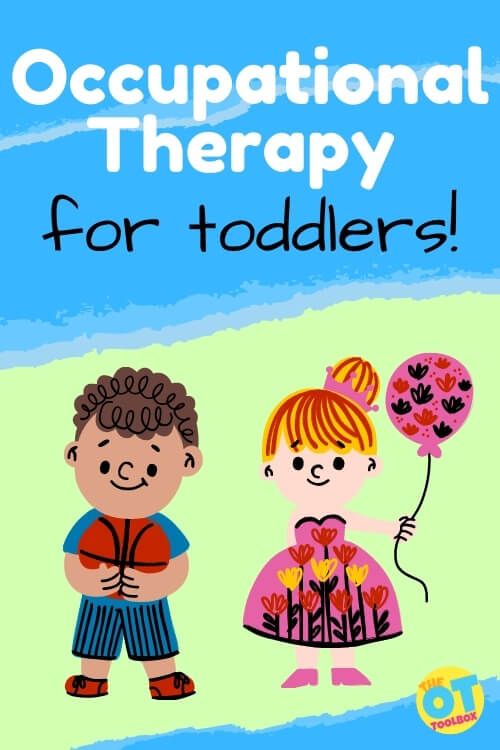
Occupational Therapy Activities for Toddlers
We’re going to cover a lot of fun OT activities for toddlers in this post…there are so many fun ways to build skills! It’s during the toddler stage that children begin to imitate, pretend, and play with others.
Let’s start with some resources for parents of toddlers. Check out the parent toolbox for occupational therapy resources for parents. There, you’ll find information to guide your process through OT, including resources like these:
- Child in Therapy? Start Here!
- Virtual Therapy Tips for Parents
- Things Therapists Want Parents to Know About Pencil Grasp
- Gut Feelings about Your Child’s Sensory Red Flags
- Family Wellness Tips and Tools
- Tantrums, Behaviors, or Sensory…Which is it?
- Potty Training Tips from the OT
- Cooking with Kids to Build Skills
- What you Need to Know About Child Development
- Picky Eating- Is it Oral Motor, Sensory, or Both?
- Hand eye coordination activities for toddlers
Does my toddler need occupational therapy
Occupational therapy can help individuals of all ages and abilities to perform daily tasks, or the “occupations” that one completes day in and day out. For toddlers, OT helps kiFcronds with developmental delays, or challenges in sensory processing, feeding, toileting, self-care, fine motor skills, sleep, and the primary occupation of kids: play!
OTs work with toddlers with developmental delays, specific diagnoses like autism, oral motor challenges, sensory processing concerns, birth defects, any type of neurodiversity, as well as typically developing kiddos that are delayed or experiencing challenges with motor skill accomplishment.
If your toddler experiences delays or difficulties with these areas, they may benefit from occupational therapy.
If you notice major differences in your child’s development, then it may be time to reach out to the pediatrician, but for the most part, try not to worry too much about whether your kiddo is on track or not.
Play the Work of a Toddler
Through pretend play, children learn and develop the skills they will use long down the road.
Toddlers explore their environment by walking an finding things, putting things into containers, rolling things, throwing things, turning pages, and examining the inside and outside of things. From 2 to 2.5, children observe others but do not play with them. Kids aged 2.5-3 play alongside other children, but not with them in social situations. Starting at 3, children often times begin to interact with others in their play.
Play also builds social skills. They can lead scenes, take turns, follow directions, explore empathy, gain more of a sense of self, build self-confidence, while working on tool use, clothing fasteners, and building and developing fine and gross motor skills.
Pretend Play- Toddlers begin to develop skills in pretend play during the toddler years. Pretend play encourages language, emotional exploration, and “job” scenes.
toddler activities
One thing to remember about toddler activities…(and this toddler tip is coming from an occupational therapist’s perspective) is to not focus too much on skills your toddler is achieving (or not achieving), and to let them play! During play, toddlers are building the foundation for strength, motor skills, visual processing skills, social skills, sensory processing skills, learning, and so much more.
Don’t obsess over meeting certain levels or hitting those milestones by exact dates. Watch for a flow of development in your little one and if you have concerns about your little one reaching certain milestones, bring it up to their pediatrician.
Setting Your Toddler up for Success
There are a few primary elements when it comes to implementing OT activities for toddlers in a way that helps young children interact through play. Through these strategies, you can guide play so that it is a powerful developmental tool.
- Meet the level of the child- Meeting the child at their level is twofold. One aspect of connecting with a child involves physically getting down at the child’s level to meet them at their physical level. The other aspect is meeting the child at their emotional and developmental level. Adults who are playing with a toddler can act and communicate at the same age and level of the child to encourage participation. They can talk in the way the child speaks (nonverbal, single words or phrases, etc.) in order to interact through games, imagination, or creative play.
- Set up a toddler safe space. As your baby develops into a toddler, babyproofing changes too. You’ll need a space away from stairs, outlets, breakable household items, etc. Having a space with baskets of toddler toys or boxes of toddler-safe toys, books, or blocks gives the child ownership over their space.
- Be a balanced play partner. Play with your toddler is a chance to work on communication, emotional awareness, and social interactions. All of this fills your toddler’s social emotional skills bucket. Interactions with a child should be a reciprocal event where there is turn-taking in communication and action. Waiting for a child to respond can be effective in meaningful communication. Initiating play can begin by doing one thing (imagination, initial moves in a game, or a single request/direction and then acting reciprocally by taking turns with actions, sounds, and words. Play offers a sense of community, team work, creativity, language, and problem solving.
- Enjoy the play- Interacting with kids is fun! Animated interactions and flexible play make play situations a relaxed time where the child can communicate. Show affection, animation, and genuine gratitude for the chance to play with the individual. Limit personal distractions such as phones and have fun!
- Don’t fall into the “screens” trap. So often, parents hand their phone or tablet screen off to their little one. There are educational apps for toddlers and YouTube videos for toddlers on there, right? I mean, Baby Shark is basically a toddler celebrity. Well, yes this is true…but remember moderation. When your toddler is looking at a screen, they miss the learning opportunities happening all around them.
Toddlers and Social Emotional SKills
There are many social emotional skills that can be built through toddler play activities. During these years we see development in confidence, emotional understanding, regulation, behaviors, social interaction, communication.
OT activities for toddlers can focus on social emotional development through play. Play can help young kids understand social emotional skills like:
- Understanding/Engaging in social expectations (social norms) in dressing, bathing, grooming, etc.
- Social participation
- Conflict resolution with friends
- Empathizing with others
- Responding to feedback in school, home, or work tasks
- Making good judgement and safety decisions in the community
- Showing manners
- Understanding subtle social norms in the community or play
- Transitions in tasks in school or at home
- Ability to screen out input during tasks
- Cooperation in play and in group learning
Sometimes we hear kids exclaim, “I can’t!” or “That’s too hard.” While it can be difficult to help kids see that they can try at those hard tasks, it’s encouraging to see more information in schools and online that touts the benefits of raising kids with a growth mindset.
Nurturing resilience in kids helps them succeed at things that they may think are hard to do. It gives them the confidence to try and a willingness to learn new things. This self-confidence ability has its roots in play. By playing with new activities, games, or acting out pretend play situations, children can try new things, practice tasks they’ve observed grownups doing, and explore.
By playing with blocks, for example, children can build a tower that might get knocked down. However, when it does fall over, they can try again while viewing the process as a chance to learn or try a new way to build that tower. Play offers children the opportunities to genuinely enjoy the process of developing new skills through feedback and practice. There’s more: kids can build self-confidence through play as a way to practice language, movements, and understanding how their bodies and the world around them works.
Try these OT activities for toddlers focusing on social emotional development:
- Exploring Books Through Play
- Emotional development toys
- Identifying Emotions Activity
- Social Skills Interventions
Toddler Art Activities
Toddlers love art activities. Give a Toddler paint, and they are in a happy place. Creating art with Toddlers is not a product-oriented activity. Art with Toddler aged children is such an amazing sensory and learning opportunity. Kids can develop many skills through art, including color identification, language, self-confidence, direction-following, problem-solving, prediction, tool use, fine motor dexterity, and so much more. Try these Toddler Art ideas for creative fun with your child.
- Paint with Bows
- Paint with Pinwheels
- Valentine’s Day Window Clings
- Red, White, and Blue Toddler Easel Art
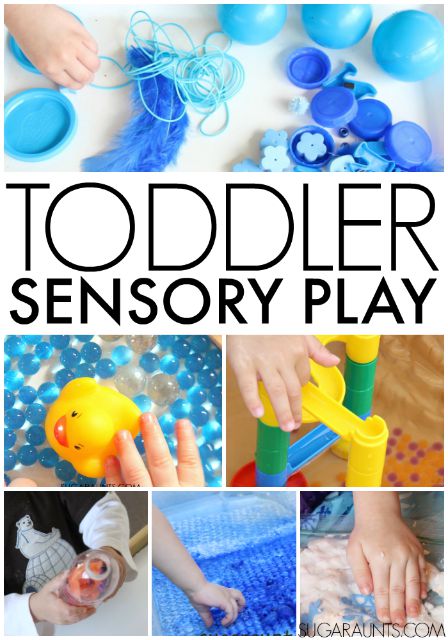
Toddler Sensory Activities
OT activities for toddlers focus a lot on sensory play. The toddler years are a fun time to incorporate sensory play. Occupational therapy activities revolve around sensory play with toddlers for many reasons. The ability to take in sensory information and use it to function accordingly is sensory processing. It’s the way our bodies organize information from the world around us so we can move, perceive, and use that information. Through play, toddlers are beginning to understand how their body works as they learn and integrate that sensory information. Play allows kids to become aware of their body’s movement as they jump, roll, spin, and tumble upside down.
Kids can experience a variety of textures through messy play, or by playing with flowers, mud or rocks, which helps them gain controlled and coordinated use of their hands. They gain an understanding of how their body is positioned in space by moving heavy objects, pushing, pulling, climbing, and carrying items in play. Play provides sensory-based opportunities for discovery and learning as children build experiences with their world around them.
Try these OT activities for toddlers using sensory play:
- Oobleck in the Marble Run
- Crayon Floam Dough
- How to Make a Sensory Bottle
- New Baby Sensory Play for Siblings
- Soap Sensory Play
- Ducklings Sensory Play
- Play Kitchen Mud Sensory Play
- Marble Run Water Table Sensory Play
- Crayon Salt Dough Sensory Play
- Creative Water Play Sensory Play
- Play Dough Scented with Body Wash
- Bubbles Sensory Play
- Christmas Tree Sensory Play
- Little Blue and Little Yellow Sensory Play
- Easy Light Table Sensory Play
- Press Here Sensory Play
- Monochromatic Sensory Water Play
- Corn and Cookie Cutters Sensory Bin
- Sensory Play with Rocks
- Christmas Peppermint Noodle Sensory Play
- Baby and Toddler Sensory Floor Play
- Dandelion Messy Sensory Play
- Textured Shaving Cream Sensory Play
- Blue-Themed Sensory Play for Babies and Toddlers
Toddler Movement Activities
Here’s the thing about OT activities for toddlers: all of the ideas listed on this page are helping your little one build fine motor skills, gross motor skills, sensory processing input, motor planning, coordination, and filling their experience “bank” when it comes to movement. This is SO powerful for children!
Gross motor skills start developing from infancy when they lie on their belly in tummy time, and when they begin to crawl, they are developing the elements that drive higher level skills. Gross motor skills in toddler years, like catching and throwing a ball, going up and down steps, balancing to put on clothing, stabilizing in different seats with less support, are all founded in gross motor development.
When babies start to play with toys, crawl, and cruise along furniture, they are building their core strength that provides stability for tasks they will complete down the road. Gross motor skills like running, rolling, climbing, hopping, or skipping occur during play as kids innately practice moving in a variety of positions.
Activities like pretend play, moving over couch cushions, climbing playground equipment, running around outside, and throwing and catching balls, all develop and refine those gross motor skills for greater accuracy, coordination, and endurance in things kids need to do every day.
Here are some movement activities for toddlers that help build these skills:
Living Room Obstacle Course– Along the same lines as the previous activity, use living room pillows and couch cushions to create obstacles on the floor. This is a great way to encourage movement in a variety of patterns and gain skills in different positions: crawling, standing from a sitting position, standing on one foot, hopping, skipping, jumping, kicking, balancing…the list of gross motor skill development in the toddler years is staggering. As your toddler grows, they will become more confident in their movement and this is great to see! Be sure to stay close by and ensure the space is babyproofed!
Bubbles- Blowing bubbles with a toddler is a wonderful way to encourage visual tracking, eye-hand coordination, core strength, sitting balance, neck control, and even fine motor skills! Encourage your little one to watch the bubbles as they float away and visual processing skills develop. Ask them to get the bubble and they can work on controlled reach and grasp. Bubbles are a great activity throughout the toddler years to develop and strengthen motor skills as they gain control in standing, walking, running, hopping, and position changes. Grab a container of bubbles and have fun!
Ball Activities- During the toddler years, children develop the motor skills, visual processing skills, and coordination to roll a ball, catch a ball, throw a ball, and kick a ball. A partially blown up beach ball is a wonderful tool for helping your little one gain balance and strength with these ball skills at first. The ball when not blown up entirely provides a great opportunity for grasp. Rolling a beach ball toward a toddler to catch or kick is wonderful for developing visual processing skills, visual discrimination, eye-hand coordination, grasp and release, strengthening, and more. Adding more air to the ball makes it harder to grasp and harder to catch as the ball will roll more quickly and smoothly. Older kiddos can use that ball to kick, throw, and even hit targets like a basket or bin.
Box of Toys- Have an Amazon delivery box or a shoebox sitting around? It’s a novel toy for your little one! Fill it with toddler-safe objects or toys and get ready to have fun. Pulling items out and dropping them back in teaches baby so much about weight, grasp, eye-hand coordination, and even gravity. They will love to see how things fall and how they hit off other toys. Dumping a box of toys is fun of its own and is another experiment of it’s own. SO much development can happen with a simple cardboard box!
Movement Rhymes- Songs that incorporate movement, like Row, Row, Row Your Boat are a great activity for toddlers. And, these movement rhymes and songs build an emotional connection, cognitive skills, exposure to language, rhyming, phonics, social emotional skills, coordination, balance, and core strength. Here is more information on movement rhymes and songs for kids. And, here are even more action rhymes and information on additional skills that help toddlers develop, like behavioral development. This is a great way to challenge movement, balance, and visual skills as baby makes eye contact with you in a fun way!
Toddler Learning Through Play Activities
Skills like attention, working memory, task completion, imitation and other executive functioning skills develop through play and have a lasting impact on higher level cognitive tasks. OT activities for toddlers that impact learning occurs through simple play!
It’s through play that kids get practice in understanding these skill, at an age-appropriate level and these skills begin in the toddler years. By watching older children, adults, and other models, toddlers gain a beginning understanding on the building blocks of executive functioning skills.
And, play in the toddler years helps to build skills like regulation and problem solving. Games and puzzles build skills in multi-tasking, working memory, and impulse control. Crafts and creative play can help kids hone their ability to filter out unnecessary information and allow them to plan, prioritize and see a project through to completion. While these skills will be developed all throughout childhood and even early adulthood, play in the toddler years begins a foundation for these essential skills.
Try these toddler activities in occupational therapy:
- Rainbow Chain Link Color Sorting
- Neat Pincer Grasp Fine Motor Activity
- Creative Scissor Skills Practice
- Precision in Grasp and Release of Fine Motor Skills
- Learn and Play with a Muffin Tin
- Learning and Play for 0-2
- Color Stacking Cups
- Play Dough Letter Identification
- Rainbow Color Sort Lollipop Sticks
- Color Sort Jingle Bells
- Color Matching Legos
- Christmas Shapes Play
- Teaching Body Parts to Toddlers
- Toddler Ping Pong Visual Motor Water Play
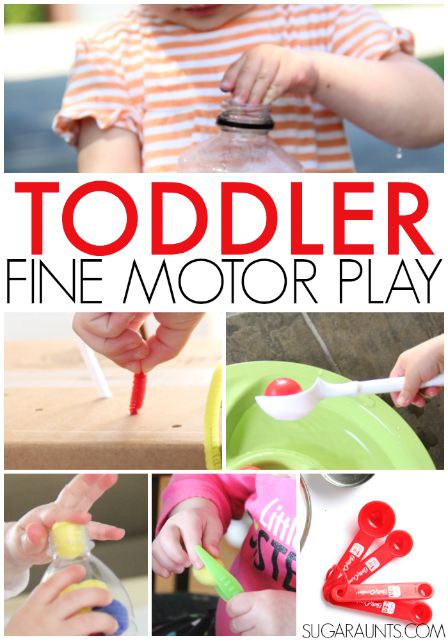
Toddler Fine Motor Activities
OT activities for toddlers focus on fine motor development, too. Fine motor skills really advance during the toddler years. Children move from picking up a block with a gross grasp to precision and refined grasp that allows them to color, thread beads, cut with scissors, manage buttons, snaps, buckles, turn a single page of a book, and much more.
When we talk about fine motor skills, we’re talking about more than holding a pencil or managing a zipper. Fine motor skills are necessary for almost every task that a child completes. These essential skills depend on development and stability in the core (or the mid-section and belly, also known as your trunk). Strength and stability in the shoulder and arm allow for refined and coordinated use of the hands. In play activities, toddlers develop and cultivating fine motor skills, coordination, strength, dexterity, open thumb web space, thumb IP joint flexion, and more.
By exploring and manipulating small objects like beads, stamps, snapping blocks, and other toys, children can gain strength and precision in their hands, so that coordinated and efficient use of a pencil or scissors becomes fluid and natural. There’s more: by playing small objects with the hands, children develop eye-hand coordination, or coordinated use of the hands and eyes, which is necessary for reading, writing, self-care, managing containers, cutting with scissors, and almost every other task.
Try these OT activities for toddlers to build fine motor skills in occupational therapy with toddlers:
Finger Paint- You can start with taste-safe finger paints made from flour, baby foods, or pudding, and as toddlers gain more self-awareness, body awareness, and impulse control, you can move to actual finger paints. Moving the texture in their hands provides a tactile sensory challenge, and has its fine motor benefits, too. Finger paints provide an opportunity to isolate their pointer finger to point and smear, separate the thumb side of the hand from the stability side of the hand (SO important in higher level fine motor tasks!), and develop the arches of the hand which is helpful in more refined fine motor activities. A little water play at the end of this activity is great for cleaning up AND has sensory benefits of its own!
Water Play- Speaking of water play, there are so many ways to engage, explore, and build skills using water play. A small dish and some crushed ice is a great way to encourage grasp with sensory benefits. A scoop and some large balls can be used to introduce scooping and pouring. The sky is the limit when it comes to toddler safe water play. Just be sure to keep a close eye on your little one and trust your gut when it comes to setting up play activities. Here are water play ideas to get you started.
Scoop, Pour, Dump- Water play is one way to build scooping and pouring skills, but using dry materials is powerful, too. Toddlers can build eye-hand coordination skills, motor planning, left/right discrimination, shoulder stability, wrist stability, and core strength with pouring and scooping activities that build fine motor skills in the toddler years. Here are sensory bins that encourage fine motor skill development.
Block Building- Use stacking cups, blocks, or small boxes (empty tissue boxes work great) to stack and knock over! Toddlers are rapidly gaining the coordination, motor skills, eye-hand coordination, bilateral coordination, and visual motor skills to build towers, block forms, and all kinds of complex buildings with blocks. Toddlers begin to gain more refined motor skills and the excitement of knocking those towers over again and again will not end!
Coloring- Coloring builds so many fine motor skills. Occupational therapists will use crayons of different sizes and shapes in helping toddlers to develop fine motor dexterity, precision, eye-hand coordination, direction following, and more. Read here about the best crayons for toddlers based on an occupational therapists’ experience.
Stickers- Playing with stickers builds many fine motor skills, too. OTs will use stickers with toddlers to help with fine motor skill development, precision, coordination, visual schedules, and more.
Try these other ideas for fine motor development in toddler OT activities:
- Fine Motor Pincer Grasp Color Match for Toddlers
- Water Beads on a Marble Run in Water Table
- Fine Motor Ideas for Kids
- Rainbow Color Sort Lollipop Sticks
- Christmas Ornament Sorting Activity for Toddlers/ Sensory Play for Babies
- Fine Motor Table-Top Play
- In-Hand Manipulation Ideas
- Fine Motor Play for Toddlers: Pipe Cleaner Fun
- Pipe Cleaners and a Cardboard Box. Fine Motor for Toddlers
- Scooping Ice Fine Motor Play for Toddlers
- Color Sorting for Toddlers: Dyed Pumpkin Seeds
- Rainbow Chain Link Color Sort
- Hand Dominance and Fine Motor with Scooping and Pouring
- Fine Motor Play for Toddlers: Crafting Poms
- Fine Motor, Eye-Hand Coordination for Toddlers using Wikki Stix
Toddler Self-Care Activities
As all of the developmental areas that we’ve talked about improve, toddlers are capable of more independence in their self-care tasks. It’s during these years that we’ll see more independence with self-care, clothing management (including putting on and taking off socks, pants, shirts, accessories, shoes, etc.)
- Check out these resources for dressing and self- care in the toddler years.
- Try these tips for teaching buttoning.
- Here are tips for teaching zippering
We’ll see longer and more predictable sleep patterns that impact learning.
We’ll see changes in eating, both in the independence and sometimes in the picky eating that happens with toddlers.
- Here is information on picky eating.
- Check out the benefits of messy eating for toddlers.
- Here is help for oral motor issues that can impact feeding.
The toddler years bring potty training. Here are occupational therapy suggestions for potty training seats. Here are tips on how to teach potty training. This resource on toilet training for kids of all abilities and needs is a wonderful resource that covers all aspects of potty training.

Colleen Beck, OTR/L has been an occupational therapist since 2000, working in school-based, hand therapy, outpatient peds, EI, and SNF. Colleen created The OT Toolbox to inspire therapists, teachers, and parents with easy and fun tools to help children thrive. Read her story about going from an OT making $3/hour (after paying for kids’ childcare) to a full-time OT resource creator for millions of readers. Want to collaborate? Send an email to contact@theottoolbox.com.

